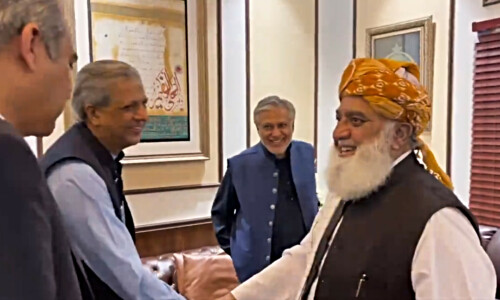IN the movies, all the spacemen are Americans, but that's just because Hollywood makes the movies. In the real world, the United States is giving up on space, although it is trying hard to conceal its retreat.
For the next decade, at least, the United States will be an also-ran in space, while the new space powers forge rapidly ahead. And even if some subsequent administration should decide it wants to get back in the race, it will find it almost impossible to catch up. Which is why the first man on Mars will probably be Chinese or Indian, not American.
Last week, three Americans with a very special status — they have all commanded missions to the moon — made their dismay public. In an open letter Neil Armstrong, the first human being to walk on the moon, Jim Lovell, commander of Apollo 13, and Eugene Cernan, commander of Apollo 17, condemned President Barack Obama's plans for the National Aeronautics and Space Administration (Nasa) as the beginning of a “long downhill slide to mediocrity” for the United States.
The letter was timed to coincide with Obama's visit to Cape Canaveral to defend his new policy, which abandons the goal of returning to the moon by 2020, or indeed ever. Obama insists that this sacrifice will allow the US to pursue a more ambitious goal, but his plan to send Americans to Mars by the late 2030s has the distinct political advantage of not needing really heavy investment while he is still in office — even if he wins a second term.
The 'Constellation' programme that he scrapped had two goals. One was to replace the ageing Shuttle fleet for delivering people and cargo to near-Earth orbits. The other was to give the US the big rockets it would need to meet George W. Bush's target of establishing a permanent American base on the moon by 2020 where rockets would be assembled to explore the Solar System.
That programme's timetable was slipping and would undoubtedly have slipped further, as such programmes often do.
It would have ended up costing a lot $108bn by 2020, as much as the Pentagon spends in three months, with the possibility that it would have ended up costing one or two more months' worth of the defence budget. But it would have kept the United States in the game. Obama's plan only pretends to.
He talked about a manned mission to some asteroid beyond the moon by around 2025, and another that will orbit Mars for some months in the mid-2030s —“and a landing on Mars will follow”.
In the meantime, and presumably even for some years after Obama leaves office in 2016 (should he be re-elected in 2012), the United States will have no vehicle capable of putting astronauts into orbit. It will be able to buy passenger space on Russian rockets, or on the rapidly developing Chinese manned vehicles, or maybe by 2015 even on Indian rockets.
Obama suggests that this embarrassment will be avoided because private enterprise will come up with cheap and efficient 'space taxis' that can at least deliver people and cargo to the International Space Station once in a while. And he's going to invest a whole $6bn in these private companies over the next five years.
These entrepreneurs include Amazon president Jeff Bezos, John Carmack, programmer of Doom and Quake, Elon Musk, co-founder of PayPal, and of course Richard Branson of Virgin Everything. “Our success is vital to the success of the US space programme,” Musk said recently.











































Dear visitor, the comments section is undergoing an overhaul and will return soon.